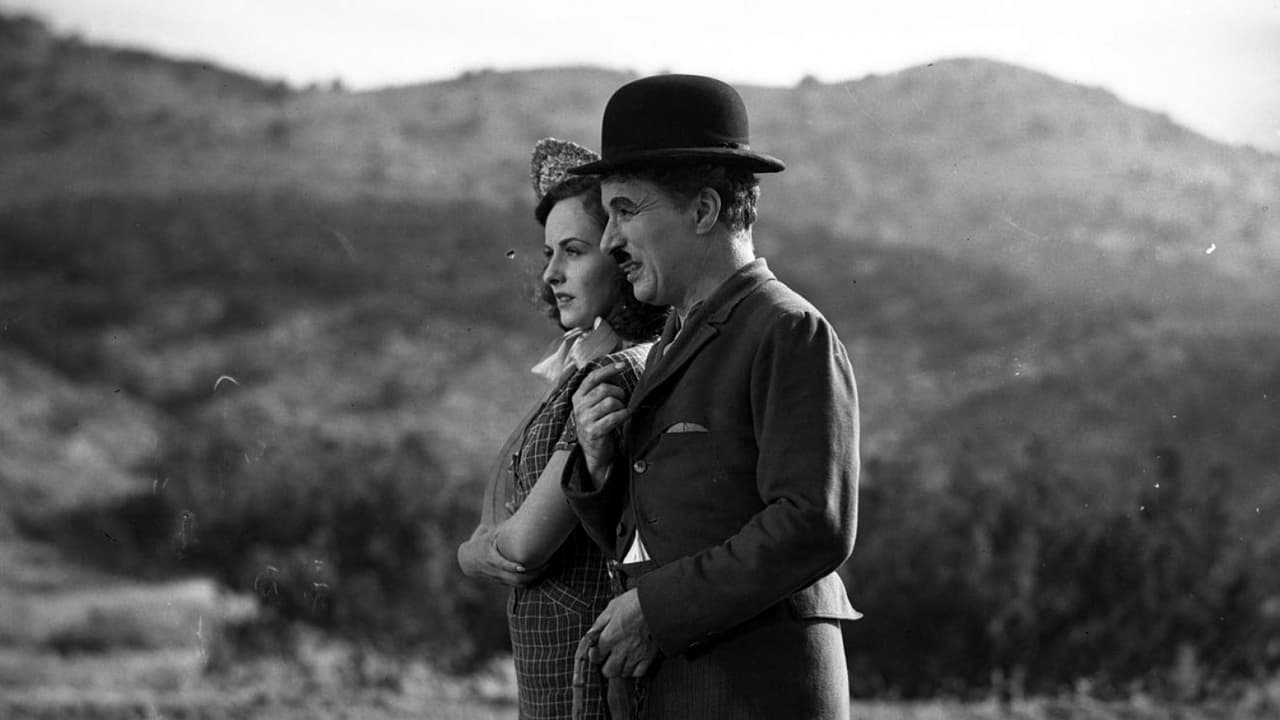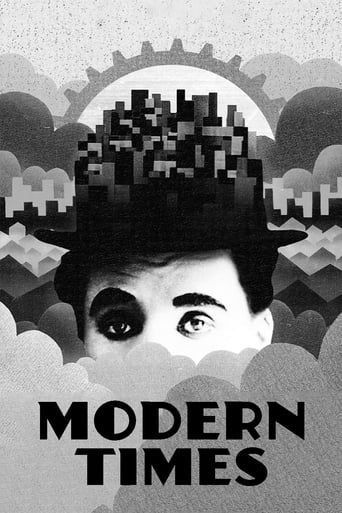Mabel Munoz
Just intense enough to provide a much-needed diversion, just lightweight enough to make you forget about it soon after it’s over. It’s not exactly “good,” per se, but it does what it sets out to do in terms of putting us on edge, which makes it … successful?
Niall O'Hara
I watched Modern Times as my first Chaplin film and in fact, my first ever silent film. Being 21 years old I may have a different view on comedy and older films but I failed to see the deep emotional side of this film.The ending is emotional, thought out and very touching, but I personally felt that the simple plot consisted largely of slapstick comedy (which I have never been fond of) performed by a protagonist who could not function as a normal human being in modern society. Because of this, I found myself unable to relate to the film. I believe that a more 'normal' protagonist could have given this film much more meaning... saying this, if we had a 'normal' protagonist then this would not be a Charlie Chaplin comedy film.To summarise, my relatively low score out of 10 comes down to my age, my lack of understanding of Chaplin's history and my dislike of slapstick comedy. The reason the score isn't lower is due to my respect for Chaplin, silent films and old cinema as well as finding some of the moments in this film both amusing and touching.
david-sarkies
I was actually about to completely write off this movie until I actually realised the genius that went into creating it. In a way Hollywood simply does not make movies like this any more, particularly where the creative genius of Charlie Chaplin is the writer, director, and star of the show. Sure, Chaplin is one of those actors that I have heard a lot about – he is one of the greats of the early years of Hollywood – but I never paid much attention to him believing that the only decent movies of the silent era came out of Germany (and to an extent Russia). However, a friend at work was talking about a film called The Dictator and a part of me decided that maybe it was time to actually sit down and see what Charlie Chaplin was all about. Well, I have to admit that I am glad that I did.The film itself doesn't have a plot, but rather is about the struggles of two people in the great depression and an age where technology is taking all of the jobs. However, Chaplin is a genius in how we satirises everything about modern life from automation, crazy inventions, the union movement, and even communism. On one level it simply seems to be nothing more than slapstick, though it is one of those movies that you have to take a step back and think about what is being said to really understand the true satire that Modern Times actually is – in a way it works on two levels, the slapstick for the lowest common denominator, and the satire of those who are actually willing to sit down and think about what is going on. Even then the slapstick itself is really clever – I am not going to forget the scene where he carries a tray into a restaurant to have everybody suddenly pile onto the dancefloor and then getting carried away with the crowd.What really impressed me was how versatile they were when it came to making silent films. Sure, by this time they had started to produce talkies, and you could tell that this film did have a sound track (and Chaplin even sings), however it is clear that you don't actually need sound, or even a lot of words, to be able to see the action that is happening, and to work out what is being said despite the fact that no words are coming out of the actor's mouth – only their lips are moving. In a way this type of film is actually far, far superior than many of the films that we see floating around today with all the great computerised special effects and clever stunt doubles. In fact all of the stunts in this movie would have been performed by Chaplin without any special effects whatsoever.Yet it is also interesting to see how much hasn't changed. In a way we look back in the days of our parents and grandparents and see a world where everybody had a job, and that you could drop out of school at year ten and walk straight into a career. It was also a world where people had money, and things were much more peaceful. However, Modern Times gives us a different glimpse into the great depression, where automation was taking all the jobs, and that unless you were skilled you were unable to find employment. Also notice how people are being sent to gaol simply for stealing a loaf of bread, but not only that but people will actually pursue somebody who is only trying to feed themselves. Yet we also have that dream of home ownership – and in a way it is painted that owning a home is a sign of wealth, a sign of achieving the American Dream – and the ending is interesting in that it gives the idea that no matter where you land up the dream is still alive.Having a job is a key to living the dream – as we see with the heroine. When Chaplin gets out of gaol the third time (it seems that he is always landing up in gaol – as if ending up there is just a part of life, however it is also just a minor inconvenience on the road to living the dream), she has found herself a job, and is now dressed well, and has possessions. In a way that reminded me of when I got my first job – suddenly I had money that I could spend, and I could go down to the shop and impulse buy an Iron Maiden T-Shirt. However, there is a catch, something that is not indicated in the movie, and that is the trap that the modern society creates – to survive you must work, but once you start working you suddenly have access to credit, and what credit, or more so debt, does is that entraps you in that daily cycle of forever going to work.Yet we also have the capitalist idea of forever producing more and becoming more efficient. The factory bosses are looking for ways to cut down on break times, so they create an automated feeding machine (which basically doesn't work). Then we have the assembly line going faster, and faster, and faster, until poor old Chaplin has a nervous breakdown and eventually sees bolts everywhere that must be turned. Yet this is still the case today, where employers are looking for more and better ways to become more efficient, to get more out of workers, and to eventually increase the bottom line. This is more so since, like in Chaplin's day, we have entered a period of a new normal after the Great Recession.
Hitchcoc
Charles Chaplin, if he never did anything else, will be remembered forever for this film and "City Lights." In this one, there seems to be a revolving door to the jail. He is arrested time after time after time. He is a cog in the machine of the factory where he works. He does monotonous work, putting a single bolt on some piece of equipment. Eventually, he breaks down and causes a commotion, getting himself thrown in jail. He meets a free spirit, played by Paulette Goddard, one of the true beauties of the silent film. Through a series of random events, including inadvertently stopping a burglary, he is give jobs, but they are always a disaster because of his high strung nature. He is accused of being a communist. He comports with criminals, always seeming to be in the wrong place at the wrong time. Society doesn't seem to like free spirits and he pays the price. The thing is that no matter what, he stays in high spirits and continues to prosper as a man.

